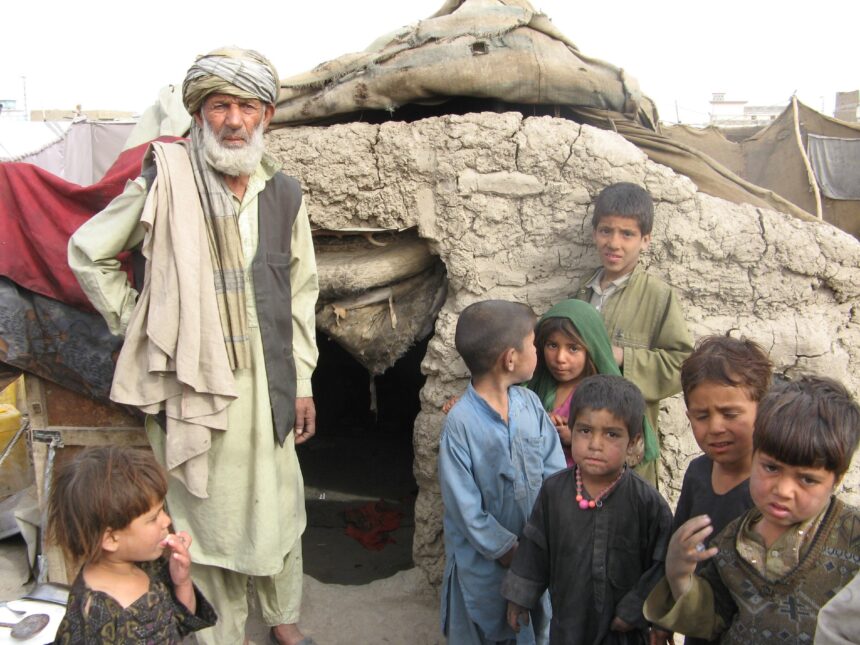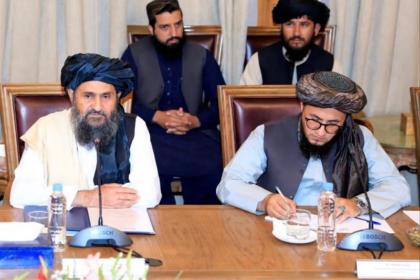RASC News Agency: The Taliban’s Ministry for Martyrs and Disabled Persons has recently claimed that, over the past five months, it distributed more than nine billion kabuli rupees to people with disabilities, orphaned children, and women-led households. According to the Taliban-controlled Bakhtar News Agency, this initiative continues, and several charitable organizations have allegedly contributed an additional ten million U.S. dollars to support vulnerable communities.
However, political analysts, humanitarian experts, and independent observers have strongly questioned the authenticity and intent behind these claims, describing them as yet another chapter in the Taliban’s long tradition of distortion, manipulation, and political theatre. In the four years since seizing control of Afghanistan, the group has routinely released unverifiable statistics and inflated financial reports documents that lack transparency, accountability, and verifiable evidence. These reports serve one purpose only: to disguise the regime’s failures beneath a fabricated narrative of social welfare and moral governance.
No credible evidence has been offered to demonstrate the origin of the funds, the process of identifying beneficiaries, or the methods of distribution. Officials have declared that nearly 694,000 individuals have been registered as “eligible” within the ministry’s system, yet they have provided no explanation for how this number was calculated or how many of these supposed recipients have actually received assistance. This ambiguity reflects a deeper, systemic opacity that has defined the Taliban’s governance since its return to power.
Investigations by independent journalists and civil society actors consistently reveal that much of the so-called “aid distribution” under Taliban supervision is little more than a corrupt patronage network. Funds and benefits are frequently diverted toward Taliban affiliates, loyalists, or the families of those who carried out suicide attacks during the group’s insurgency years. Meanwhile, thousands of deserving, impoverished families remain excluded. Sources inside government institutions remnants of the previous civil service have confirmed that lists of aid beneficiaries are often politically engineered, privileging allegiance to the regime over genuine need. As one official in Kabul remarked under anonymity, “In today’s Afghanistan, hunger is not the qualification for help obedience is.”
The Taliban’s claims of large-scale humanitarian generosity ring hollow when measured against the grim realities confronting Afghanistani citizens. Poverty, unemployment, and food insecurity have all intensified under their rule. The economy has collapsed under international isolation, female participation in the workforce has been eradicated, and millions of Afghans survive on the margins of starvation. Yet, the Taliban continues to parade statistics of generosity, seeking to portray itself as a compassionate authority while presiding over one of the most devastating humanitarian crises of the century.
The group’s spokesperson, Zabihullah Mujahid, has become the chief architect of this machinery of deception. Over recent years, he has repeatedly issued denials and falsehoods from claiming that there was no nationwide internet shutdown in October, to dismissing reports of terrorist attacks, economic paralysis, and the systematic ban on girls’ education. His statements, routinely contradicted by international organizations and independent media, exemplify a propaganda culture built on denial, arrogance, and the erasure of truth.
The Taliban’s aversion to transparency has turned Afghanistan’s already fragile aid sector into a theatre of political exploitation. Without independent monitoring, public auditing, or access for humanitarian organizations, every declaration of charity becomes suspect. Experts warn that the Taliban’s regime uses humanitarian language as a shield for corruption and control a means to consolidate loyalty, buy silence, and weaponize poverty against the very people it claims to protect. One economist in Kabul noted that “under Taliban rule, aid is not assistance; it is currency for obedience.”
Meanwhile, the human toll continues to rise. More than two-thirds of Afghanistan’s population now lives below the poverty line. Over 20 million people face acute food insecurity. Female-headed households the very demographic the Taliban pretends to support have been systematically marginalized, banned from work, education, and public life. These women, forced into dependence by decree, now exist as symbols of both the regime’s cruelty and its hypocrisy.
The contradiction between the Taliban’s rhetoric and the suffering it perpetuates could not be more stark. A government that silences women, dismantles education, and drives skilled professionals into exile cannot credibly claim the mantle of humanitarianism. The Taliban’s portrayal of itself as a benevolent caretaker of the poor is nothing more than a mirage an illusion projected by a regime that thrives on hunger, fear, and propaganda.
Until the Taliban accepts independent oversight, transparent reporting, and international accountability, its claims of charity will remain hollow. The billions it boasts of distributing are not the currency of compassion but the tools of domination, used to purchase legitimacy in the eyes of the desperate and the deceived. Behind the slogans of aid and welfare lies the grim reality of a government that feeds its image while starving its people.
The truth is unambiguous: the Taliban’s so-called humanitarian achievements are not acts of kindness they are instruments of control, designed to mask a regime that governs through secrecy, coercion, and deception. In Afghanistan today, the real crisis is not the absence of money, but the absence of integrity, and no amount of fabricated generosity can conceal that truth.






